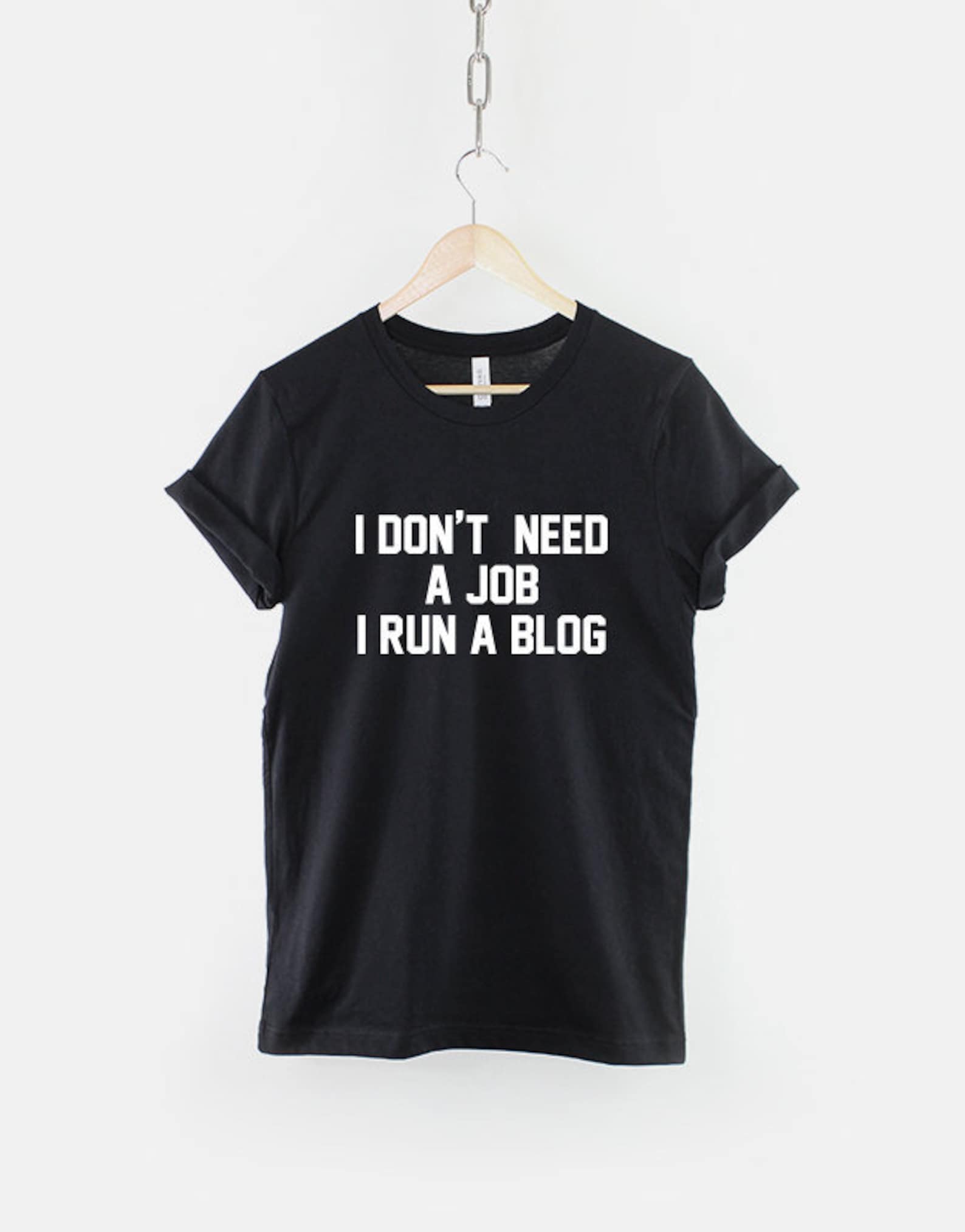How I Think Blogging Will Change in the Next Few Years
Posted on
Originally written in 2017, updated in 2025 with new reflections and predictions!
I originally wrote this post in 2017, sharing my thoughts and predictions on how blogging might evolve in the future. It’s now 2025, and I thought it would be interesting to revisit this post—to reflect on which predictions came true, what’s changed, and where I think blogging is headed next.
Blogging has certainly evolved over the past eight years. It continues to be a powerful tool for content creators, businesses, and everyday people who want to share ideas, connect with an audience, or even build a full-time income. In this updated post, I’ve kept my original thoughts at the end and added a new section exploring what blogging looks like in 2025 and beyond.
Let’s dive into where blogging is today—and what might be coming next.

Blogging in 2025 and Beyond: What’s Changed and Where We’re Headed
1. AI is Changing the Blogging Landscape
AI wasn’t even on my radar when I wrote the original version of this post. Now in 2025, it’s become one of the biggest tools for bloggers. It can help brainstorm content ideas, generate article drafts, optimise for SEO, and even create unique images or audio versions of blog posts.
That said, AI is best used as an assistant—not a replacement. The best content still needs a personal voice and human editing. Readers can usually tell when something’s completely AI-generated, and the human touch still matters more than ever.
2. A Shift Towards Evergreen and Niche Content
Personal diary-style blogs were everywhere back in the early days. While they still have their place, most successful blogs today focus on evergreen, niche-specific content. This makes sense. People are searching for helpful, reliable answers online, and niche blogs tend to perform better in search engines and attract loyal audiences.
3. Bloggers Are Becoming Multi-Channel Creators
Many bloggers now use a multi-platform approach. It’s not unusual to see bloggers also on YouTube, TikTok, or Instagram, using those platforms to promote their blogs and create complementary content. This approach helps build trust and increases visibility in an increasingly noisy online world.
4. More Emphasis on Community
Email newsletters, online communities, and private Facebook groups have become more important for bloggers. Relying purely on social media algorithms or SEO can be risky, so many bloggers now focus on building direct relationships with their audiences through email and closed platforms they control.
5. Bloggers Are More Business-Minded Than Ever
Bloggers today tend to start with monetisation in mind, whether through display ads, affiliate marketing, sponsored posts, or selling digital products. There’s a greater understanding now that blogs can be real businesses—and many bloggers treat them as such from day one.

Blogger T-Shirt - I Don't Need A Job I Run A Blog
Reflecting on My Original Predictions From 2017
Looking back at the thoughts I had eight years ago (I'll share the original content below for reference), it’s interesting to see what I got right—and what’s changed in surprising ways.
A New All-In-One Blogging Platform?
I wondered whether a new blogging platform would emerge to take over from WordPress or Blogger. That didn’t happen. In fact, I saw more people moving from Blogger to WordPress, and WordPress is still the top choice for bloggers worldwide. Its flexibility, plugins, and widespread support make it hard to beat.
Hobby Bloggers vs. Professionals
This one still holds true. There’s a mix of hobby bloggers and professionals—but I’ve noticed that more bloggers now value their time and expect payment for collaborations. Fewer are accepting “gifted” deals. More creators know their worth and understand the value they offer brands.
Display Ads and Changing Attitudes
Display ads are still huge—even with the rise of ad blockers. The difference now is that many readers seem more accepting of ads as a way to support the websites they enjoy. Bloggers, meanwhile, have diversified. Many now use display ads, sponsored posts, affiliate marketing, and increasingly, user-generated content (UGC) partnerships with brands.
Blogging as a Recognised Profession
In 2017, blogging still felt like a mystery to many. Now, it’s far more recognised as a real career. People may still not fully understand how blogging works or how it makes money, but it’s no longer such an unusual job title. I’ve been a full-time blogger since January 2017, after starting my blog in April 2013 and monetising from 2016. These days, I meet a mix of people—some who completely get it, and some who still raise an eyebrow. But when I started, hardly anyone got it. That alone shows how far blogging has come.
More Competition—but More Opportunity Too
Yes, there’s more competition. But long-term bloggers like myself, who’ve built experience, networks, and strategies over a decade or more, are well-positioned. There’s also a lot more information available today to help new bloggers succeed. While it might be harder to get started from scratch, there are also more tools and resources to guide you.
Is Blogging Dead?
Absolutely not. Despite what you might hear, blogging is still very much alive. Millions of blog posts are published and read every single day. While video is hugely popular, there’s still a big audience for written content. What’s more common now is content creators blending blogging with video and other formats—rather than switching to just one.

Blogger mug with text "A mug full of blogging ideas"
My Original Thoughts on Blogging (From 2017)
This is the original blog post content, unchanged since it was first published in 2017:
"Blogging has become big news in recent times and I believe it’s not even reached its peak just yet.
Here are some stats just from WordPress which is one of the most popular blogging platforms:
Over 409 million people view more than 23.6 billion pages each month.
Users produce about 82.7 million new posts and 44.5 million new comments each month.
These statistics are pretty staggering! And let’s not forget this is just one blogging platform and there are plenty more out there probably with their own tremendous figures too.
Blogging has surprisingly become my main income in the last six months, even though I’ve been blogging for over four years. What started out as an idea to drive traffic to my ecommerce store, turned into a passionate hobby and has now turned into my self employed income. I’m still amazed I can make a sustainable income from my online activities, but more and more people are discovering the same.
I see that blogging has changed quite a lot since its humble beginnings, with brands realising the advantages of unique content creation in aiding their own SEO efforts. Sponsored blog posts are becoming common place for those who wish to monetise their blogs and this practice seems to be booming just now.
Here are my thoughts on the future of blogging:
New blogging platform with everything integrated in one place
I see most bloggers seem to prefer WordPress or Blogger, but I wonder if a new all-singing-all-dancing blogging platform is on the horizon. Something which does everything you need it to with a billion templates, themes and features where you need no technical know-how. A platform that makes everything so easy you can just get on with the writing and not all the faffing or tech issues!More professional bloggers
There will still be those who blog for a hobby, but more bloggers seem to set up blogs for business purposes nowadays. There are those who try to set theirs up just for freebies, but they rarely seem to last. There’s no such thing as a freebie in the blogging world! Blogging professionally takes a vast amount of time, knowledge and effort and it certainly doesn’t suit everyone. I believe there will be more people starting a blog with a business plan and goals in mind, rather than purely a pastime.More brands using blogger services
It’s possible there will be a shift in online advertising, which I think we are beginning to see already. As people become irritated by online ads ruining their viewing experience they are installing ad blockers. This is not good news for brands wanting to get their products and message out there! Brands will need to find new ways to reach their audiences and blogs are perfect for this. Natural content is much more appealing than advertorials. Natural content is also the perfect place for brands to place links and improve their SEO.Recognised as a profession
As blogging becomes more widely known it will begin to be recognised as a credible profession. At the moment many people do not understand how people make a living from a blog and I’ve even heard of bloggers (who blog full time) being told ‘get a proper job’. Well excuse me, but making a full time income (or any income) from a blog means it is a job!More competition
As more people monetise their blogs, more people will create blogs to make money. This means there will be more and more competition for paid work. This means starting a blog just to make money will become harder as there are so many others trying to do the same as you.Less bloggers, more vloggers
Lots of bloggers seem to take the leap from writing to creating videos and becoming a YouTuber or vlogger. As video continues to be on the rise and YouTube is forever growing in popularity I think more people will be interested in vlogging in the first place. I still much prefer reading and writing so I’ll stick with old school typing for now!"
FAQs About Blogging in 2025
Is blogging still worth it in 2025?
Yes! Blogging remains a powerful way to build an online presence, share knowledge, and earn money. With evolving strategies like SEO, evergreen content, and affiliate marketing, blogging still offers long-term opportunities.
How do bloggers make money today?
Bloggers earn through various methods: display ads, affiliate marketing, sponsored posts, digital products, memberships, freelance writing, and more. Diversifying income streams is common in 2025.
Can you start a blog without any tech knowledge?
Absolutely. Platforms like WordPress and Squarespace make it easy to launch a blog without needing to code. Many tools are designed for beginners and come with templates and plugins that simplify everything.
How long does it take to make money from a blog?
It depends. Some bloggers earn within a few months, but for most, it can take a year or more to build traffic and income. Success requires consistent effort and a clear strategy.
What’s the difference between a blog and a vlog?
A blog is written content (like this post), while a vlog is video-based, typically on YouTube or social platforms. Many content creators now combine both for greater reach.

Blogger or Writing Lover Candle Gift
My Blogging Timeline: From Hobby to Full-Time Career
-
April 2013: Started blogging to support my ecommerce store
-
2016: Began monetising my blog through various methods
-
January 2017: Became a full-time blogger
-
2017–2025: Built multiple income streams, worked with brands, grew traffic and metrics
-
2025: Still blogging full-time on three websites!
Final Word
Blogging in 2025 is still thriving. It’s evolved, yes—but the core idea remains the same: sharing helpful, engaging content with people who need it.
Whether you’re just starting out or have been blogging for over a decade like me, it’s clear there’s still plenty of room to grow, create and connect. Trends will continue to change, but the value of a well-written, well-optimised, or even a heartfelt blog post remains strong.
Thanks for reading—and if you’re on this blogging journey too, I hope this reflection inspires you to keep going.
More Helpful Posts for Bloggers
If you're exploring blogging or want to earn from your platform, these posts may help:


